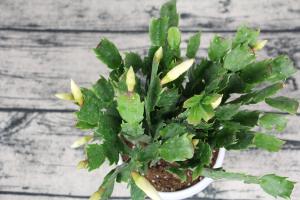Don't Plant Tomatoes With:
Tomatoes are a popular crop for home gardeners; they are delicious, nutritious, and relatively easy to grow. But, just like any other crop, tomatoes have their own set of companions and enemies in the garden. Companion planting is the practice of planting crops together that complement each other and deter pests, while planting crops together that have conflicting needs or attract pests can lead to poor growth and increased susceptibility to disease. Here are some plants that you should avoid planting with tomatoes:
Avoid Planting Tomatoes With Brassicas
Brassicas are a family of plants that includes cabbage, broccoli, and cauliflower. These plants have high levels of sulfur-containing compounds that can affect the growth and health of tomatoes. Planting tomatoes with brassicas can also attract the same pests, such as aphids and whiteflies, which can spread diseases such as mosaic virus and bacterial speck.
Don't Plant Tomatoes With Nightshades
Tomatoes are part of the nightshade family, which includes plants like peppers, eggplants, and potatoes. Planting tomatoes with other nightshades can lead to problems with pests and diseases, as they share similar vulnerabilities. For example, planting tomatoes with peppers can lead to an increased risk of tomato pinworms and aphids.
Avoid Planting Tomatoes With Corn
Tomatoes and corn are incompatible because they have different nutrient needs. Corn is a heavy feeder, and it can deplete the soil of nutrients that tomatoes need to thrive. Planting these two crops together can result in weaker, less healthy plants and a lower yield overall.
Don't Plant Tomatoes With Fennel
Fennel is a herb that is often used in cooking and has a distinctive anise-like flavor. While it may be a great addition to your culinary garden, it is not a good companion plant for tomatoes. Fennel produces chemicals that can inhibit the growth of tomatoes and cause them to wilt or even die. Planting these two together can lead to stunted growth, low yields, and an increased risk of diseases.
Avoid Planting Tomatoes With Kohlrabi
Kohlrabi is a vegetable that is commonly used in salads and stir-fries. While it may be a tasty addition to your garden, it is not a good companion plant for tomatoes. Kohlrabi is a member of the brassica family, and as such, it has similar vulnerabilities and nutrient needs. Planting tomatoes and kohlrabi together can lead to nutrient deficiencies and an increased risk of disease.
In conclusion, companion planting is an excellent way to support the health and growth of your tomato plants. By avoiding the plants mentioned above and choosing the right companions, you can help your tomatoes thrive and produce a bountiful harvest. Happy gardening!

 how many times do yo...
how many times do yo... how many planted tre...
how many planted tre... how many pine trees ...
how many pine trees ... how many pecan trees...
how many pecan trees... how many plants comp...
how many plants comp... how many plants can ...
how many plants can ... how many plants and ...
how many plants and ... how many pepper plan...
how many pepper plan...































